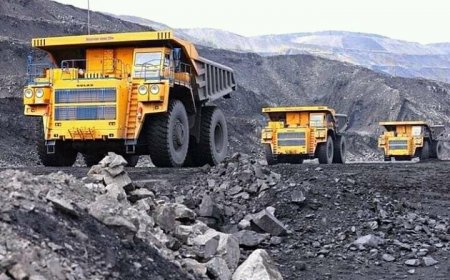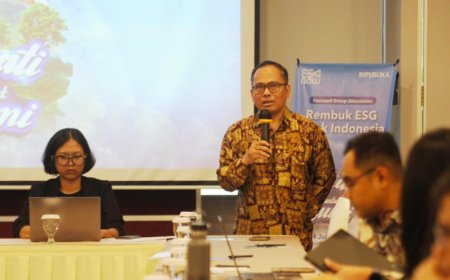Greta Thunberg: When climate activists speak up about Palestine
Genocide in Gaza is estimated to have increased air, land and water pollution to double
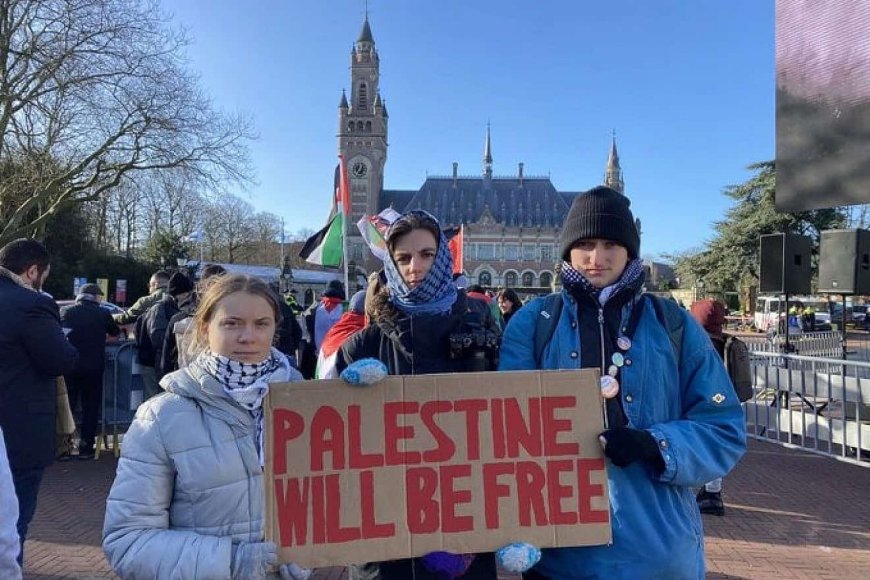
MOSAIC-INDONESIA.COM, JAKARTA -- Young Swedish activist Greta Thunberg is known as a courageous figure who often voices her concern for climate change in the world. Later, Greta also colored her climate actions with support for the Palestinian people.
Thunberg appeared to join a climate change and pro-Palestinian march in Milan, Italy, on Friday (11/10/2024). The 21-year-old activist headed to the fashion city after being accused 'dangerous' by German authorities simply for criticising Israel.
The climate change movement that Thunberg initiated, Fridays For Future, organized a peaceful march in the town in northern Italy that attracted more than a thousand participants. Many of them are teenagers. “You can't call yourself a climate activist if you don't fight for an independent Palestine and an end to colonialism and oppression around the world,” Thunberg said. “Silence means to be involved! You can't be neutral in a genocide.”
In her speech, the 21-year-old explained that Palestinians have lived under stifling oppression for decades by the apartheid regime. They have to accept the genocide over the past year that was broadcast live by Israel. “The world is once again abandoning Palestine!” he said.
As other protesters waved flags, carried placards, and danced to music, Greta marched near the head of the parade wearing a kaffiyeh, a traditional scarf representing the Palestinian liberation struggle.
In recent times, Thunberg does seem to be increasingly active in supporting the Palestinians. In May, he declared that actions like this should be everywhere. As a consequence, Greta has to face the repressiveness of the apparatus.
Earlier last month, Thunberg was arrested in Copenhagen by Danish police during a protest against the war in Gaza, according to a spokesman for the student group that organized the demonstration.
Thunberg has previously accused German police of having threatened and silenced pro-Palestinian activists. The charges were hurled a day after police in Dortmund closed down a protest camp that had been going on for four months which the 21-year-old activist had been invited to join.
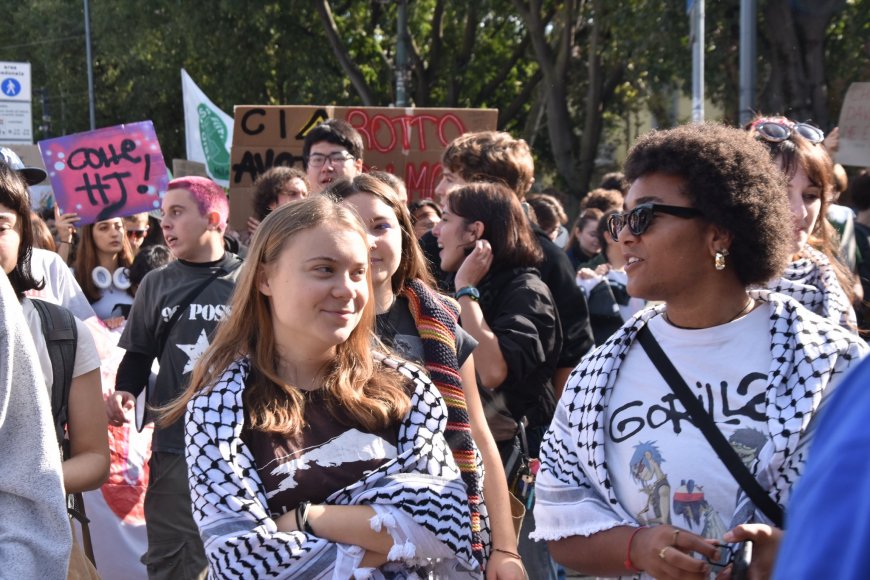
“The police said they would arrest me if I went there,” tweeted Thunberg on his X account. “All this happened only because the students invited me to speak at their event, and I had attended a [pro-Palestinian] protest in Berlin the day before that was later dispersed by the police. Germany threatens and silences activists who speak out against genocide and occupation.”
German police said on Tuesday night: “Recent events related to Thunberg have led him to be assessed as a participant willing to commit violence.” This statement was later retracted by the police, who stated that it was an “internal error”, as quoted by Anadolu Agency.
Thunberg has repeatedly expressed her solidarity with the Palestinians and accused Israel of genocide.
Climate and conflict
Quoted from greeneuropeanjournal, activists refer to capitalist, colonialist, or extractive systems as the fundamental issue of climate change. The relationship between the war and climate change in the context of Gaza, is judged to be mixed for many. Some point to the fact that Israel's historical treatment of Palestinians exacerbates the climate risks the population faces by, for example, compromising access to water.
Israel has also been accused of greenwashing colonialism when it legitimises land grabs of Palestinians in the name of tackling climate change. Meanwhile, one climate campaign group, 350.org has provided a narrative linking the two without making causal claims, stating that “There will be no climate justice without peace, and in calling for peace, we are very clear about peace on both sides.”
The inclusion of anti-militarism in the climate change struggle, as expressed through its support for Palestine, cannot be ignored as a distraction from what is “really” at stake in the climate struggle.
The wider debate about the role played by climate change in intensifying conflict in the Middle East is longstanding. So is the portrayal of militarism as an essential pillar of the extractive system of oppression. This facilitates climate change while ensuring the sustainability of the system in the face of opposition.
Since it began in the 1970s, the modern environmental movement has embraced pacifism as a core principle, and there are strong historical links between the peace movement and the anti-nuclear wing of the environmental movement. The inclusion of anti-militarism in the climate change struggle, as expressed through its support for the Palestinians, is historically unsurprising.
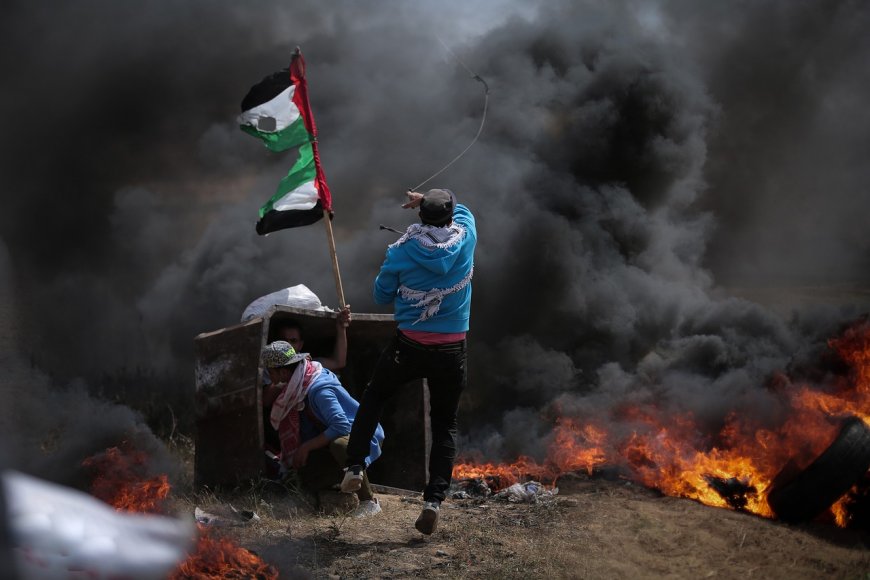
The real impact of the climate issue with the genocide in Gaza was clearly stated by the Charity for Ecology and the Environment (IFEES/Ecoislam), a UK-based charity that focuses on environmental issues. IFEES revealed that the action has increased air, soil and water pollution by a factor of two.
Israel's bombing campaign in Gaza is considered the deadliest attack in the history of modern warfare. The scale of the impact of this war on the climate has produced more gases causing global warming than the annual emissions produced by 20 countries vulnerable to climate change, according to a recent study, IFEES writes. The study estimated that Israel's aerial bombing and military response accounted for more than 99% of the 281,000 tons of carbon dioxide produced in the first 60 days of the conflict. This amount is equivalent to burning at least 150 thousand tons of coal.
Hamas rockets fired into Israel in the same period are estimated to yield 713 tons or the equivalent of burning 300 tons of coal. Given the magnitude of the damage from this war, all indications suggest that the climate impact of post-conflict reconstruction will be enormous. According to IFEES, in just two months, the damage from Israel's bombing campaign against the densely populated residential area had exceeded the damage inflicted by the allied bombing of Cologne and Dresden during the second world war
.

